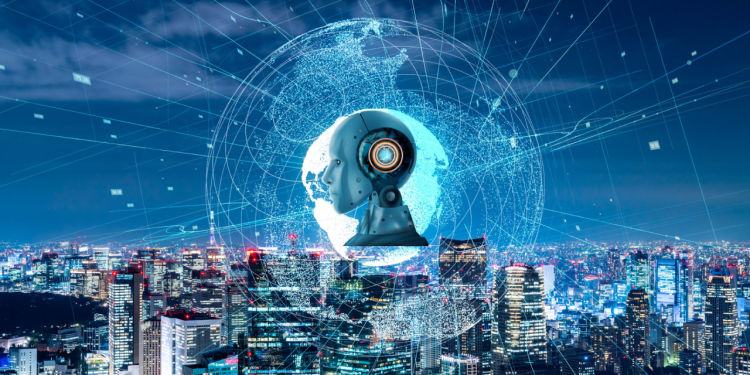Artificial intelligence (AI) is transforming nearly every facet of modern civilization—from healthcare and security to finance and transportation. Diplomacy, often considered one of the most human-centered professions, is not immune to this technological wave. While fears abound that AI will one day replace diplomats, the reality is far more nuanced and promising: AI is poised to complement human diplomacy, not supplant it. When applied ethically and intelligently, AI can enhance strategic planning, accelerate international negotiations, and foster deeper cooperation—without making ambassadors obsolete.
The Irreplaceable Human Element
At its core, diplomacy is a deeply human enterprise. It relies on emotional intelligence, cultural sensitivity, intuition, and ethical judgment—areas where AI continues to lag. Diplomats work in complex, high-stakes environments that demand subtlety: reading body language, interpreting tone, building trust, and navigating ambiguity.
Even the most advanced AI lacks what psychologists call “Theory of Mind”—the ability to understand others’ thoughts, desires, and intentions. Without this capacity, AI cannot fully grasp the motivations behind human actions. A 2023 Pew Research Center study revealed that 78% of foreign affairs professionals believe “human intuition, cultural nuance, and ethical reasoning” remain indispensable in diplomatic dialogue.
AI in Diplomatic Practice: A New Ally
Rather than viewing AI as a threat, many countries and international bodies are integrating it as a strategic ally. AI enhances diplomacy in several key areas:
1. Real-Time Multilingual Translation
Language barriers can hinder dialogue, especially in multilateral forums. AI tools like Google Translate, DeepL, and Microsoft Translator now offer near real-time translations with significant accuracy improvements. The UN Department for General Assembly and Conference Management (DGACM) reported a 62% increase in AI translation usage between 2020 and 2023. These tools expand inclusivity and reduce dependence on human translators for routine or informal meetings.
2. Data-Driven Decision Making
AI can analyze vast datasets—from economic indicators and satellite imagery to social media trends—to produce actionable insights. Diplomats now use AI to monitor disinformation, assess public sentiment, and identify geopolitical risks. For instance, the European External Action Service (EEAS) employs AI-powered dashboards to detect foreign information manipulation. As of 2024, the EEAS credited AI tools with improving their disinformation response time by 40%.
3. Predictive Analytics for Conflict Prevention
AI can detect early warning signs of instability by analyzing migration data, online discourse, and economic shifts. In 2022, the U.S. State Department partnered with Carnegie Mellon University to test an AI model that predicted potential conflict flashpoints in West Africa with 83% accuracy. Such tools enable preemptive diplomatic interventions.
4. Negotiation Support Systems
AI can model scenarios, review counterpart negotiation histories, and suggest strategies—empowering diplomats in complex talks. The U.K. Foreign, Commonwealth & Development Office’s “Diplomatic Simulation Engine” already uses AI to train junior diplomats, equipping them with real-time, data-informed decision-making skills.
Recognizing the Limits and Risks
Despite its capabilities, AI cannot replace the human dimension of diplomacy. Several limitations make this clear:
Contextual Blind Spots: AI struggles with sarcasm, metaphor, and cultural subtleties.
Bias and Hallucinations: AI models can reproduce or amplify biases and sometimes generate inaccurate content.
Ethical Gaps: AI lacks moral accountability. Decisions about war, peace, or sanctions demand ethical reasoning that only humans can provide.
Accountability Concerns: In diplomacy, every word carries weight. Delegating decisions to machines undermines trust and responsibility.
A 2024 Brookings Institution survey of G7 foreign policy experts found that 76% supported AI as a decision-support tool—but under human oversight. Only 18% favored autonomous AI systems in foreign affairs.
Case Studies: Augmenting Diplomacy, Not Automating It
1. AI in Climate Negotiations
At COP28 in Dubai, negotiators used AI to model the economic outcomes of various carbon agreements. Tools like Climate TRACE, backed by Al Gore, tracked real-time emissions using satellite data. This transparency accelerated consensus-building, showing AI’s role in promoting trust and clarity.
2. UNESCO’s Global AI Ethics Guidelines
In 2021, UNESCO adopted the first international guidelines for AI ethics. By 2024, over 50 countries had aligned their diplomatic AI frameworks with these principles. This underscores how diplomacy can shape AI governance—not the other way around.
3. India’s AI-Driven Cultural Diplomacy
India’s Ministry of External Affairs uses AI to optimize diaspora engagement and cultural outreach. AI identified underserved Indian communities in Africa, resulting in tailored initiatives. According to MEA’s 2023 report, this led to a 28% increase in participation in cultural programs across the continent.
The Future: AI as a Diplomatic Force Multiplier
As part of broader trends in “smart governance,” AI is emerging as a force multiplier in diplomacy—helping diplomats work more efficiently, reach wider audiences, and respond faster to crises. This potential, however, comes with a caveat: strong human oversight is essential.
The future may see the rise of “AI attachés”—specialists embedded in embassies to assist with analytics, planning, and crisis simulations. Already, more than 35 countries have appointed Chief Data Officers or AI Policy Advisors in their foreign ministries. According to the World Economic Forum’s 2025 Global Future Council on Diplomacy report, 84% of experts expect AI to become integral to diplomatic operations. However, 92% emphasized the need for ethical safeguards and human control.
Policy Recommendations
To ensure AI complements rather than compromises diplomacy, governments should:
Invest in AI training for diplomats through simulations and continuous education.
Adopt foreign-policy-specific AI ethics guidelines, drawing from UNESCO’s model.
Strengthen multilateral cooperation on AI governance to prevent misuse or escalation.
Enhance cybersecurity and data protection for sensitive diplomatic systems.
Conclusion: Human Insight, Machine Power
AI won’t replace the firm handshake that ends a long negotiation, the quiet conversation that diffuses a crisis, or the cross-cultural empathy cultivated over decades. It cannot replicate the moral compass of a peace negotiator or the contextual finesse of a veteran envoy. But it can support and empower them—serving as a compass, not the captain.
The future of diplomacy lies not in choosing between man or machine, but in forging an alliance between them. In a world increasingly defined by complexity, uncertainty, and interconnectedness, the synergy of human wisdom and artificial intelligence may offer our best hope for enduring peace and cooperation.






